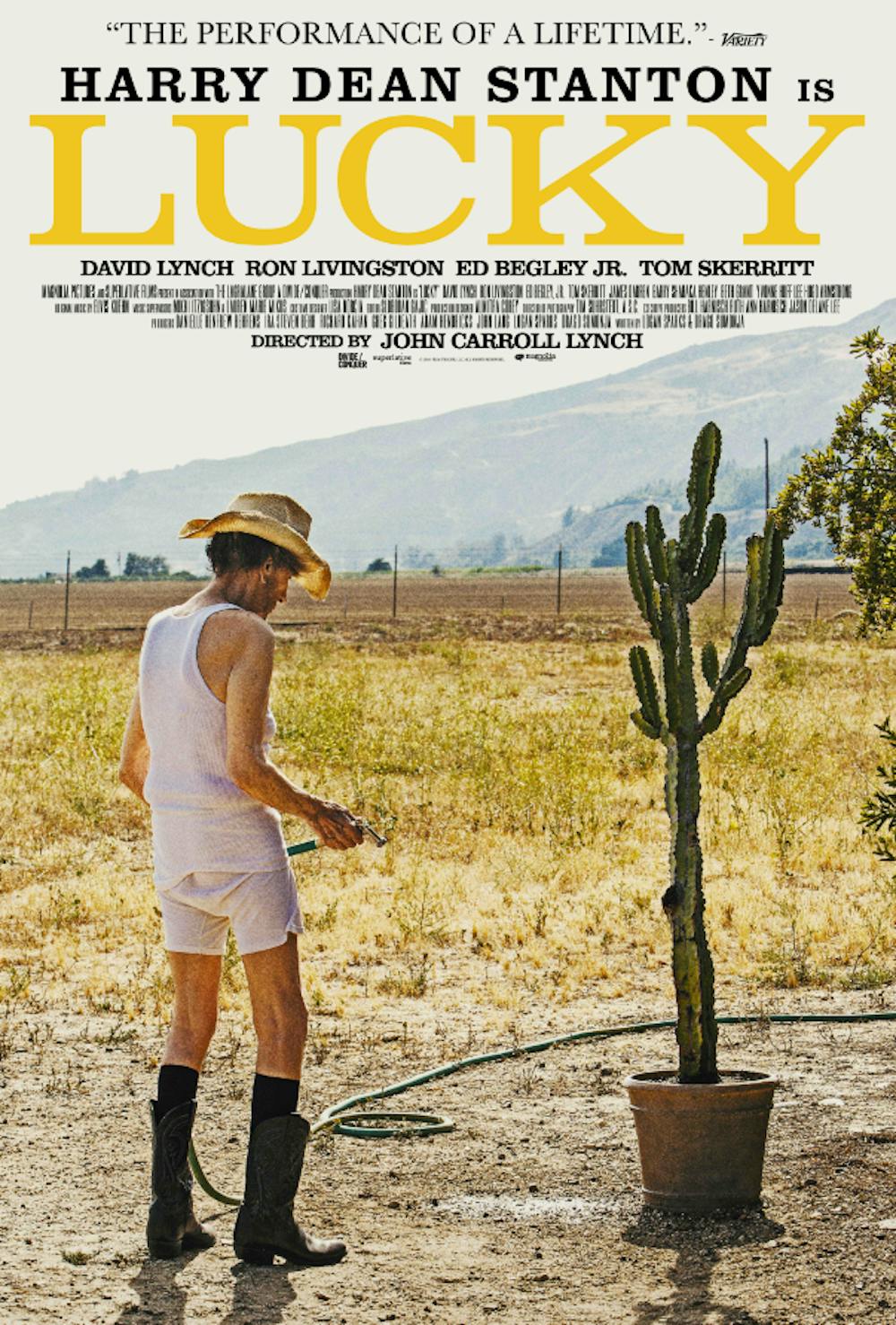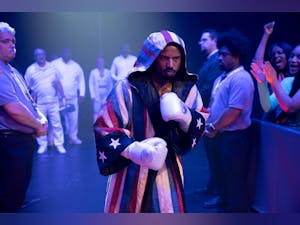From: Silver Screen
Harry Dean Stanton isn’t feeling too 'Lucky' in John Carroll Lynch’s directorial debut

Courtesy of Emilia Peixoto.
The pivotal question running through my mind during the first act of “Lucky” was the following: did director John Carroll Lynch’s film merely feature Harry Dean Stanton, or was the film in fact a swan song about the iconic character actor?
The film explores the life of an unassuming man named Lucky, played by Stanton. Lucky goes through the same routine every day: he wakes up, smokes a cigarette, does his morning exercises and heads out to do his daily errands. His life has seemingly been this way for years and Lucky has embraced this ritual. One day, though, this innocuous routine gets interrupted when he falls down in his house, highlighting the character’s frailty and age. From then on we see Lucky trying to grapple with the concept of death, and pondering what we leave behind when we fade away.
The film revolves around a series of conversations featuring the townspeople, played by such luminaries as David Lynch, Ron Livingston and James Darren. They try to provide Lucky some comforting perspectives on life in general. Indeed, those discussions are thematically rich and fascinating, but may often feel a tad too explicit and unnatural. We come to understand Lucky’s internal struggles through them, but having his feelings enunciated and explained this much takes away from some of the impact it could have had.
As the film unwinds, however, we discover that this isn’t merely a story about a 90-year-old atheist and his state of mind, but also about an emotive and material foundation that people are ensnared in. Lucky became an entity that the townspeople got used to, similar to the flora surrounding his town (particularly the cacti), or the parable involving a hundred year-old turtle running away from Lucky’s friend. His foundation and impact is telegraphed every day by honking car horns to say hello, saving his preferred seat at the local diner and preparing his Bloody Mary whenever he hits the bar at night. If there ever came a day when these acts of kinship ceased, or when Lucky, an institution himself, was no longer there, the town's DNA would forever be altered. This was the most striking and greatest element in the film, and what allowed me to question the true purpose of the story.
Perhaps Lynch, a successful actor in his own right, saw Stanton as a similar institution. Stanton, who has starred in many films spanning generations, is considered one of the best, if not the best character actor ever. He has become a familiar face to generations of people, starring in films as diverse as “Paris, Texas,” “Alien” and “The Green Mile,” among many others. Although people might not know his name, something major would be lost when he no longer makes films. Stanton has become this mythic cinematic figure we’re so used to seeing but never really stopped to think about. And it is when that expressive link between actor and character is illuminated, that this reflective journey about the human condition comes together, making Lucky a tribute well worth watching.
Grade: B+




